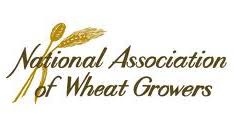 A 2014 study by DTB Associates revealed that China pays farmers more than $10 per bushel of wheat and subsidizes input costs as well. The U.S. Wheat Associates (USW) and the National Association of Wheat Growers (NAWG) have demonstrated several times in the last few years how policies like this one are hurting wheat trade in the U.S. and other wheat exporting countries.
A 2014 study by DTB Associates revealed that China pays farmers more than $10 per bushel of wheat and subsidizes input costs as well. The U.S. Wheat Associates (USW) and the National Association of Wheat Growers (NAWG) have demonstrated several times in the last few years how policies like this one are hurting wheat trade in the U.S. and other wheat exporting countries.
An Iowa State University study sponsored by USW showed China’s wheat subsidies alone cost U.S. farmers nearly $550 million each year. An updated study projects that number to have increased to $653 million.
Studies also show that China is providing an aggregate measure of support (AMS) of about $15.4 billion, or 36 percent of the value of production. When they entered the World Trade Organization the limit was set at 8.5 percent. China also agreed to a 1 percent tariff rate for wheat imports up to 9.64 million metric tons. The out-of-quota tariff rate is 65 percent and China rarely administers the tariff rate quota (TRQ) as agreed upon.
The evidence strongly supports the conclusion that China’s noncompliant domestic subsidies and TRQ administration create artificial incentives for its farmers to grow even more wheat at a time when China already controls almost 40 percent of world wheat stocks. In turn, the policies suppress wheat import demand in China and put additional downward pressure on world wheat prices.
 “Considering all the trade distorting policies U.S. farmers face in the world, the wheat subsidies in China and in other developing countries have the most serious effect on farm gate prices and trade flows,” said USW President Alan Tracy. “The studies we have sponsored clearly show the problem is growing more serious at the worst time for farmers who are already facing unprofitable prices.”
“Considering all the trade distorting policies U.S. farmers face in the world, the wheat subsidies in China and in other developing countries have the most serious effect on farm gate prices and trade flows,” said USW President Alan Tracy. “The studies we have sponsored clearly show the problem is growing more serious at the worst time for farmers who are already facing unprofitable prices.”
“We have seen prices collapse to unsustainable levels in just a few seasons, partially as a result of some of our trading partners not playing by the rules” said NAWG President Gordon Stoner, a wheat grower from Outlook, MT. “The decline in income of every wheat farmer in the United States will accelerate if China’s policies are not brought back into compliance with the commitments China’s government made to its trading partners.”
Dr. Dermot Hayes, who conducted the Iowa State University 2015 study and the update, said the results confirm that removing China’s domestic wheat support would have significant benefits for farmers in wheat exporting countries. His model showed results over time would be Chinese farmers growing less wheat over time because of a decrease in domestic prices and increase in inputs.
“In our comparison, China would need to increase its imports to more than 9.6 million metric tons per year, a volume that is about equal to the Chinese wheat tariff rate quota” said Dr. Hayes. “That would increase wheat exports and farm revenue in the United States, as well as in Europe, Canada and Australia. In the United States specifically, farm income from wheat would increase by $0.19 per bushel compared to the base scenario.”
“NAWG supports free trade and supports Congressional ratification of TPP,” said Stoner. “But trade agreements cannot meet their promise if other countries ignore the rules. It is time for the Administration to seek enforcement through the WTO.”
 Our latest ZimmPoll asked the question, “What should Congress do about GMO labeling?”
Our latest ZimmPoll asked the question, “What should Congress do about GMO labeling?”












